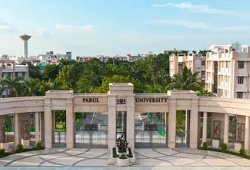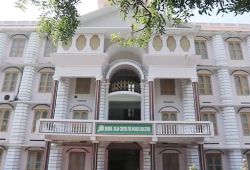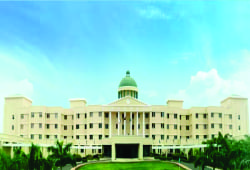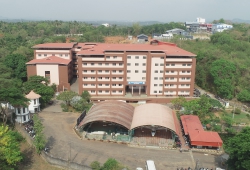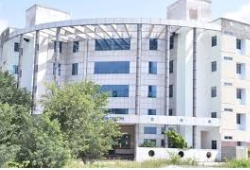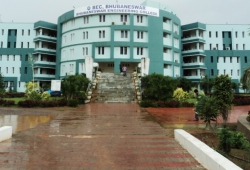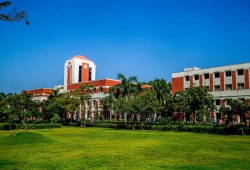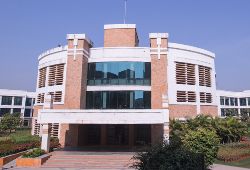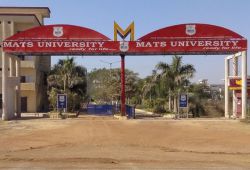Maharashtra is a state beautiful covered with sea Mumbai is the capital of Maharashtra. Maharashtra is a megacity city with a lot of populations. Aeronautical College in Maharashtra has excellent education facilities and other facilities are provided to the students. Maharashtra airport is the 2nd busiest airport in the country as aviation is growing rapidly. There is Aeronautical Engineering Colleges in Maharashtra to serve education in Aeronautical Engineering in Maharashtra.
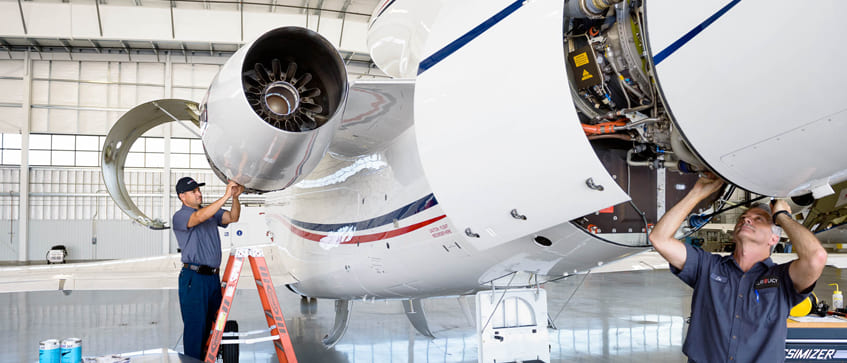
Best Aeronautical Engineering Colleges in Maharashtra
Maharashtra, a diverse and culturally rich state in western India, houses numerous prestigious aeronautical engineering institutions. These institutions encompass both private and government colleges, each with its own unique advantages.
The academic reputation of government colleges in Maharashtra attracts numerous students to choose them as their educational institution. Their education standards are high and affordable tuition makes this learning opportunity available to more students. The government funding advantages of institutions support collaboration between colleges and important industry partners to enhance student learning quality.
The private institutions located in Maharashtra provide state-of-the-art facilities together with modern teaching practices and professional business relationships. Even though private colleges typically charge elevated tuition costs they provide financial scholarships together with assistance programs to help students handle their educational costs. Through a variety of curricula, private educational institutions offer comprehensive educational programs that students can tailor to their own professional growth.
Aeronautical Engineering Course Fees in Maharashtra
The actual expenses for studying aeronautical engineering in Maharashtra will be our main topic for discussion. Aeronautical engineering course fees depend on educational institution and educational level at both government and private institutions.
Government Institutions
Aeronautical engineering course at public Maharashtra institutions and universities cost students a reasonable amount. The annual tuition costs for aeronautical engineering study in Maharashtra fall between Rs.20,000 and Rs.40,000. Such educational institutions deliver high-quality education at subsidized fees thus attracting many engineering students.
Private Institutions
Education at private engineering universities demands higher financial costs than those of government institutions. The academic fees in these educational institutions span between INR 70,000 and INR 1,50,000 annually. The institutions specialize in unique programs and maintain partnerships with business leaders which helps students gain exclusive learning possibilities.
Scholarships and Financial Aid
The pathway to financial relief for students includes searching through different scholarship opportunities together with funding programs. The paths for securing financial support during your aeronautical engineering education include merit-based scholarships together with government grants combined with educational loans. The available financial aids will decrease substantially the costs that students need to pay out of their pocket for their aeronautical engineering education.
Additional Costs to Consider
You should consider the substantial nature of tuition expenses together with the additional costs involved.
- Hostel and Accommodation: Students who transfer from outside Maharashtra for their education need to plan funding for their accommodation.
- Study Materials: Schoolbooks together with laboratory manuals and educational resources serve as substantial educational necessities.
- Transportation: The commute to the campus becomes a financial burden based on the geographic distance from your place of residence.
- Extracurricular Activities: Participation in clubs combined with seminars and workshops improves your education however you must expect extra financial responsibilities.
Eligibility Criteria for Aeronautical Engineering Colleges in Maharashtra
The requirements for admission must be met by students who wish to pursue careers as aeronautical engineers. The requirements that prospective students must fulfill before beginning their studies in aeronautical engineering are outlined in this article. Students must meet these requirements in order to be admitted to Maharashtra's top aeronautical engineering colleges:
- Academic Qualifications: Successful completion of the 10+2 examination with a strong foundation in Physics, Chemistry, and Mathematics.
- Entrance Examinations: Applicants need to obtain passing marks in entrance exams JEE Main, JEE Advanced, AME CET or state-level engineering test series for entrance.
- Minimum Aggregate Marks: Students need to achieve minimum earning scores of at least 50 % alongside their qualifying test results.
- Additional Entrance Exams: Additional entrance exams exist which specific colleges require their candidates to pass before admission.
- Age and Nationality: Authentication of eligibility often involves limitations pertaining to age or nationality varying between colleges.
Aeronautical Engineering Campus Facilities in Maharashtra
For practical training and research, aeronautical engineering depends on specialized infrastructure and facilities. This section will examine the cutting-edge resources offered by Maharashtra's aeronautical colleges.
- Cutting-Edge Laboratories: The new laboratories provide complete facilities to introduce academic programs focused on aviation technology using wind tunnels and material-testing alongside flight-simulation devices.
- Aircraft Maintenance Hangars: Students have access to aircraft maintenance and repair facilities located on the college grounds.
- Rich Library Resources: Students can use the well-stocked libraries that contain many books and research papers and online resources to perform research and learn more things.
- Aviation Workshops: The workshops possess aircraft component fabrication equipment that provides students with invaluable insights about aircraft engineering practice.
- Computer Labs: Every computer lab at the educational institution provides students with software packages that combine aerodynamic simulation systems and engineering project applications to utilize technological capabilities in their studies.
- Interactive Classrooms: Modern classrooms designed to facilitate interactive learning through the use of audio-visual aids, enhancing the educational experience.
- Research Centers: The institution promotes aerospace cutting-edge research while giving students chances to conduct innovative projects.
- Hostel Facilities: The housing facilities located on campus offer students both security and practicality while helping to build group bonds among students.
- Sports and Recreation: Students find holistic wellness through their use of gym facilities and sports areas and cultural club activities that combine exercise with mental health benefits.
Aeronautical Engineering Colleges Admission Process in Maharashtra
The process to enter aerospace engineering colleges in Maharashtra maintains defined rules. Reading this section enables understanding of what steps and requirements must be fulfilled. According to the admission process through AME CET at aeronautical engineering colleges in Maharashtra a set of steps must be followed.
- Application: Future enrollees need to begin by filling the AME CET application form while supplying the essential information.
- Entrance Exam: All candidates need to take the AME CET exam to demonstrate their aircraft maintenance engineering knowledge and intellectual capacity.
- Counseling: The process begins with result declaration for AME CET which leads to an invitation for eligible candidates to join counseling sessions. The counseling events allow students to pick their college options and courses by using their gained positions in the AME CET and considering the available seats.
- Document Verification: Must present several crucial documents related to their education and AME CET exam with their identification proofs during the counseling session.
- Seat Allotment: The AME CET exam determines both merit and candidate preferences that colleges use to assign available seats.
- Fee Payment: To confirm enrollment at their selected college students must submit relevant charges.
- Reporting to College: Students who gain admission through the AME CET program need to attend their selected colleges on a specified day to finalize administrative procedures before starting their aeronautical engineering curriculum.
Aeronautical Engineering Entrance Exam in India
Indian colleges and universities use aeronautical engineering entrance exams for determine the readiness of their prospective students. Aeronautical engineering college acceptance in India depends on passing these entrance examinations. Various accepted entrance examinations exist for gaining admission to aeronautical engineering courses:
- Joint Entrance Examination (JEE) Main: The JEE Main evaluates student performance in Physics and Chemistry and Mathematics on a national standards. Renowned engineering colleges throughout Maharashtra along with other institutions use JEE Main examination results as an admission basis.
- Joint Entrance Examination (JEE) Advanced: After passing JEE Main the subsequent requirement leads to JEE Advanced. Candidates usually take this examination for Indian Institutes of Technology (IITs) which contain aeronautical engineering programs among their offerings.
- Aircraft Maintenance Engineering Common Entrance Test (AME CET): The AME CET functions exclusively for aircraft maintenance engineering enrollment since this field represents a close match to aeronautical engineering. The admission criteria find acceptance in aircraft maintenance engineering colleges located throughout Maharashtra as well as across India.
- State-Level Engineering Entrance Exams: Different states across India organize their engineering admission tests to let students enter state-level aeronautical programs through examination results.
Download Brochure for Aeronautical Engineering Colleges in Maharashtra
The first step toward aerospace careers begins by downloading the information brochure which lists colleges offering Aeronautical Engineering in Maharashtra. This thorough guide gives essential information about top-flight programs and educational designs and entrance methods and aptitude standards along with occupational opportunities in aeronautical engineering. The brochure gives you essential information about education and career path development which will guide your choices toward aeronautical engineering success.Investigate all of your options now to begin your thrilling and fulfilling career in aeronautical engineering.
Specializations in Aeronautical Engineering
Through their diverse specializations students in aeronautical engineering can construct a program that fits their interests within aerospace field. The aeronautical engineering colleges throughout Maharashtra establish specialized programs according to the multiple requirements of aerospace industries and aviation sector. Several specific fields are available for students as follows:
- Aircraft Design and Manufacturing: This specialization focuses on the creation of aircraft, covering aspects like aerodynamics, structural design, materials, and manufacturing processes. Students gain expertise in designing efficient and safe aircraft.
- Aerospace Propulsion: Aerospace propulsion deals with aircraft engines, rockets, and propulsion systems. Students learn the principles of propulsion, engine design, and the mechanics of flight.
- Avionics and Control Systems: Avionics is all about the electronic systems on board aircraft, including communication, navigation, and flight control. This specialization delves into the technology that keeps aircraft safe and efficient.
- Aircraft Maintenance and Repair: Professional degree holders in this specialization conduct aircraft maintenance while inspecting and repairing aircraft. The training develops aircraft professionals who maintain absolute expertise in aircraft safety standards to become essential contributors within the aviation sector.
- Space Technology and Exploration: With the increasing interest in space exploration, this specialization delves into spacecraft design, satellite technology, and space mission planning. Taking on projects for satellites in addition to space missions and interplanetary exploration is something students often find themselves working on at this field.
- Aeronautical Research and Development: This specialization directs its focus toward new research advances within the field of aeronautics for individuals who want to research. Students work on assignments which extend aerospace technology limits.
- Unmanned Aerial Vehicles (UAVs) and Drones: The recent industry development of UAVs and drones led to the creation of this specialization where students learn about designing and operating unmanned aerial vehicles for surveillance and delivery and data collection purposes.
- Aerospace Management: Students who want to work in aviation business operations should choose aerospace management. Students learning about aviation operations and airline management and aviation marketing study this specialization.
Higher Qualifications in Aeronautical Engineering
Aeronautical engineering exists as an active and constantly developing field which enables professionals to move ahead in their careers or focus their expertise or pursue innovative research projects. The following list includes higher qualifications that aeronautical engineers should explore:
- Master's in Aeronautical Engineering (M. Tech/MS): The postgraduate degree enables professionals to explore the field at a deeper level while they focus on aerodynamics along with propulsion systems and structural design aspects.
- Doctor of Philosophy (Ph.D.) in Aeronautical Engineering: A Ph.D. provides research and innovation-focused candidates the opportunity to conduct major field-related work which leads to Academic and Research positions or executive-level roles in aerospace sectors.
- Master of Business Administration (MBA): Professionals who integrate their technical experience with an MBA earn valuable positions to lead the aerospace industry because these engineers demonstrate strong leadership ability in business matters.
- Certifications and Licenses: The aerospace sector provides multiple opportunities for aeronautical engineers to acquire credentialed positions including positions as licensed aircraft maintenance engineers (AMEs) and specialized authorizations for aerospace-related software and systems.
- Short-Term Courses and Workshops: The pursuit of field progress demands enrollment in brief educational programming at both academic institutions and industry groups who present teaching activities.
- Specialized Master's Programs: Some universities offer specialized master's programs in areas like aerospace management, aviation safety, or space technology, providing a well-rounded education with a specific focus.
- Online Courses and Massive Open Online Courses (MOOCs): Both online courses and Massive Open Online Courses (MOOCs) provide aerospace-related educational content which allows learners to expand their expertise through affordable and flexible educational methods.
Top Recruiters for Aeronautical Engineering Graduates:
Study of hiring companies in your field will help you predict your job prospects for the future. The job market in Maharashtra for graduates who completed Aeronautical engineering offers multiple opportunities because many well-known companies actively seek candidates. Here are some top recruiters:
- Indian Space Research Organization (ISRO): Offers career opportunities in satellite development, rocket propulsion, and space exploration projects.
- Hindustan Aeronautics Limited (HAL): A major aerospace brand selects aeronautical engineers to work in aircraft and helicopter design activities.
- Defense Research and Development Organization (DRDO): The organization uses their employees in defense technology development to produce missiles alongside creating avionics systems.
- Bharat Heavy Electricals Limited (BHEL): The company employs aeronautical engineers for gas turbine equipment development that powers electricity generation systems.
- National Aeronautics Laboratory (NAL): The organization dedicates its research to aerospace fields because their experts enhance aircraft design through wind tunnel evaluations and study aerodynamic phenomena.
- Air India: The national carrier utilizes aeronautical engineers to maintain aircraft for their brief safety operations.
- Private Aerospace Companies: Tata Advanced Systems along with L&T and Mahindra Aerospace enable candidates to find various aerospace technology and manufacturing positions.
- Aviation Companies: The airline companies IndiGo, SpiceJet and Vistara recruit aeronautical engineers to perform tasks regarding aircraft maintenance and aviation security.
- Research and Development Centers: Graduates of aeronautical engineering can perform leading research projects at academic institutions and research facilities along with independent research organizations.
- Consulting and Engineering Firms: Wipro together with TCS and Infosys maintain aerospace divisions through which they provide engineering solutions to aviation and aerospace industry operations.
Aeronautical Engineering Course Syllabus
Understanding the course syllabus is crucial for prospective students. Aeronautical engineering programs in Maharashtra offer a comprehensive curriculum that covers various subjects throughout the four-year duration of the program. Here's an overview of the typical course syllabus:
First Year Courses
- Mathematics and Applied Mathematics: Includes topics like calculus, linear algebra, differential equations, probability, and statistics.
- Physics: Covers mechanics, electromagnetism, and waves and optics.
- Engineering Mechanics: Explores statics and dynamics, kinematics, and equilibrium of structures.
- Engineering Graphics: Teaches geometrical drawing, projections, and sectional views.
Second Year Courses
- Aerodynamics: Focuses on fundamental principles, compressible and incompressible flows, and boundary layers.
- Fluid Mechanics: Addresses fluid properties and behavior, fluid statics and dynamics, and control volume analysis.
- Materials Science and Engineering: Covers properties of materials, material selection for aerospace applications, and heat treatment and material testing.
- Thermodynamics: Introduces basic concepts, laws of thermodynamics, and gas dynamics.
Third Year Courses
- Aircraft Structures: Includes structural analysis, stress and strain analysis, and finite element analysis.
- Aircraft Propulsion: Focuses on gas turbine engines, jet propulsion, and propeller theory.
- Aircraft Design and Manufacturing: Covers the design process, manufacturing techniques, and the use of composite materials in aircraft design.
- Avionics and Control Systems: Explores avionics components and systems, aircraft control systems, and flight control systems.
Fourth Year Courses
- Flight Mechanics and Aircraft Performance: Addresses aircraft performance parameters, stability and control, and flight testing.
- Aircraft Maintenance and Repair: Focuses on maintenance practices, aircraft inspection, repair, and regulatory compliance.
- Aerospace Propulsion Systems: Introduces advanced propulsion systems, rocket propulsion, and hybrid propulsion.
- Project Work and Internships: Involves a final year project and industry internships to apply learned knowledge in real-world scenarios.
Aeronautical Engineering Course Duration
Aeronautical engineering typically commences with a bachelor's degree program, which sets the foundation for your career in this field. This undergraduate program usually spans four years. During this time, students are introduced to the fundamental principles of aeronautics, including aerodynamics, aircraft structures, propulsion systems, and flight mechanics. These four years are packed with coursework, practical sessions, and projects that equip students with the knowledge and skills necessary to excel in this dynamic field.



